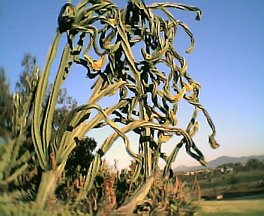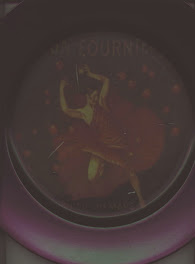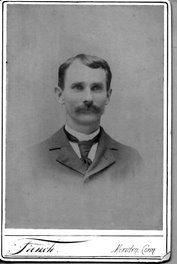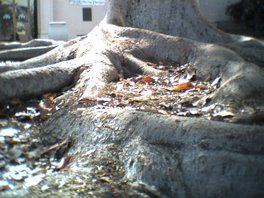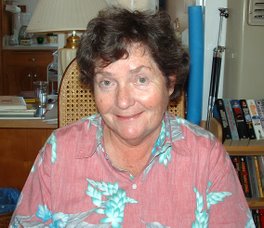A Mighty Heart, written by Mariane Pearl, is a film that tells the story of the death of her husband, journalist Daniel Pearl, who worked for the Wall Street Journal. Mariane, who is French, is also a journalist. Together they covered the 2001-2002 retaliation by the United States toward Al Queda in Afghanistan, after the destruction of the World Trade Center and the deaths of nearly 3,000 people.
Daniel and Mariane stayed in Karachi, Pakistan longer than most journalists, and were about to go home, when Daniel followed up one last lead. It led to his capture and horrible death.
The film follows Mariane through the agonizing month of her husband's captivity, and details some of the actions of Karachi police and military, U.S. Security, terrorists, the Journal's staff, U.S. military,the families of Daniel and Mariane, and families in India, Pakistan and Afghanistan who had a son or brother involved in the kidnapping.
This is the most humanist of films. Ultimately Mariane derives, at least partly from practice of Buddhism, a breathtaking perspective. The film shows how deeply Daniel and Mariane love each other, how happy in her pregnancy they were. Mariane believes and feels that others love, that others lose, that her personal tragedy is part of a great human tragedy.
You have not failed, she says to the people who tried to rescue Daniel, and have gone through this terrible time with her. The terrorists want to terrorize people, and they have failed. I am not terrorized, and you must not be terrorized, either.
In the final frame of the film, we see Mariane with her now four-year-old son, Adam, walking down a narrow street in a Paris neighborhood.
The final word: This film is for Adam.
Just Learning

Kitchen Studio
Tuesday, June 26, 2007
Thursday, June 21, 2007
Photo Fun
Old photos never die; they just get digitized.
Recently a friend gave me a used scanner. The photo on the right, Pebbles, was taken ten years ago. The first group I scanned were taken at Pt. Loma Tidal Pool. I was so excited to put the images on my computer. I love cropping them and generally tinkering with them on Photoshop. I went so far as to join Flickr and put the images up there, with captions and descriptions. You can see them on www.flickr.com under morphit, or Pt. Loma Tidal Pool. Critiques accepted.
Some photos do fade away. I'll see how the 100-year-old photo of my grandfather looks on the computer this week. I can try to sharpen and re-contrast.
I've always used point-and-shoot cameras, sometimes disposable ones, and have been pleasantly surprised sometimes by the photo quality. I take awful pictures of people, but have better luck with natural objects. Looking at Jon King's site, www.theeffectivelife.wordpress.com, I'm enthused again about textures.
Recently a friend gave me a used scanner. The photo on the right, Pebbles, was taken ten years ago. The first group I scanned were taken at Pt. Loma Tidal Pool. I was so excited to put the images on my computer. I love cropping them and generally tinkering with them on Photoshop. I went so far as to join Flickr and put the images up there, with captions and descriptions. You can see them on www.flickr.com under morphit, or Pt. Loma Tidal Pool. Critiques accepted.
Some photos do fade away. I'll see how the 100-year-old photo of my grandfather looks on the computer this week. I can try to sharpen and re-contrast.
I've always used point-and-shoot cameras, sometimes disposable ones, and have been pleasantly surprised sometimes by the photo quality. I take awful pictures of people, but have better luck with natural objects. Looking at Jon King's site, www.theeffectivelife.wordpress.com, I'm enthused again about textures.
Labels:
inspiration,
nature,
photos,
Pt. Loma,
scanner
Saturday, June 16, 2007
Bees of Canada
Beekeepers in Ontario are keeping a wary eye on the bee problem now named "colony collapse disorder." The Honey Board has allocated $13,000 to look into a solution, in case U.S.ers export their bee woes. Or maybe they're arming, just in case desperation leads to cross-border raids and bee wars. I don't think they've allocated enough.
It's interesting to me that Canada does not share the bee dieoff. It makes me think there is something contagious involved, or maybe there are new mites parasiting.
Some Ontarian beekeepers blamed the long distance hauling of hives, pollinating crops in many locations. "That's no life for a bee." Others blame pesticides and too much gene-tinkering with crops.
Reports on the subject always seem to include the phrase, "We don't find piles of dead bees." That's creepy. I guess they found lots of dead bees during epidemics and infestations. That phrase makes me look over my shoulder uneasily. Is that Rod Serling behind that tree? Are we in --- The Twilight Zone?
It's interesting to me that Canada does not share the bee dieoff. It makes me think there is something contagious involved, or maybe there are new mites parasiting.
Some Ontarian beekeepers blamed the long distance hauling of hives, pollinating crops in many locations. "That's no life for a bee." Others blame pesticides and too much gene-tinkering with crops.
Reports on the subject always seem to include the phrase, "We don't find piles of dead bees." That's creepy. I guess they found lots of dead bees during epidemics and infestations. That phrase makes me look over my shoulder uneasily. Is that Rod Serling behind that tree? Are we in --- The Twilight Zone?
Friday, June 15, 2007
Identity and Violence: 2nd Post
Amartya Sen's book, Identity and Violence: The Illusion of Destiny, Chapters One and Two.
The illusion of destiny is the fallacy that our lives are determined by identity with a particular group. Sen argues that there is always a choice. The role of choosing, making a decision, can be obscured by taking the false position that one and only one aspect of identity is all-important. Gender, class, religion, language, neighborhood, nation, vocation, arts, sports, and more become aspects of identity.
To divide the world into monolithic "civilizations," such as Western civilization, Islamic civilization, Hindu civilization, Buddhist civilization, and then to behave in politics and person as though every member of a "civilization" is the same, ignores our intimate knowledge that the members of our own "civilization" are very, very different.
Such language is part of the ascription of identity onto someone by other people. This may be benign, or simply lack of thought, but it is also part of covert and violent racism, and all the other "isms" that bring injustice and destruction to relations among peoples.
Remember all those movies in which brother is pitted against brother in the American Civil War? It is agony to choose between identity as a brother, and identity as a soldier for a cause. Drama calls for confrontation. Either one brother kills the other, or refuses to shoot and is court martialed. Another favorite scene in the movies of my childhood: during WWI or II, a Britisher or an American dives into a bomb crater to escape artillery barrages, finds a German soldier already taking shelter, and after a tense moment, they both let each other alone. I guess that one is "Identity: Human."
More later.
The illusion of destiny is the fallacy that our lives are determined by identity with a particular group. Sen argues that there is always a choice. The role of choosing, making a decision, can be obscured by taking the false position that one and only one aspect of identity is all-important. Gender, class, religion, language, neighborhood, nation, vocation, arts, sports, and more become aspects of identity.
To divide the world into monolithic "civilizations," such as Western civilization, Islamic civilization, Hindu civilization, Buddhist civilization, and then to behave in politics and person as though every member of a "civilization" is the same, ignores our intimate knowledge that the members of our own "civilization" are very, very different.
Such language is part of the ascription of identity onto someone by other people. This may be benign, or simply lack of thought, but it is also part of covert and violent racism, and all the other "isms" that bring injustice and destruction to relations among peoples.
Remember all those movies in which brother is pitted against brother in the American Civil War? It is agony to choose between identity as a brother, and identity as a soldier for a cause. Drama calls for confrontation. Either one brother kills the other, or refuses to shoot and is court martialed. Another favorite scene in the movies of my childhood: during WWI or II, a Britisher or an American dives into a bomb crater to escape artillery barrages, finds a German soldier already taking shelter, and after a tense moment, they both let each other alone. I guess that one is "Identity: Human."
More later.
Monday, June 11, 2007
Oompala
An Oompala is a tuba-shaped antelope with an extremely resonant bleat. It has been developed by breeding impala for large size and large voice. An oompala, like all God's critters, has a place in the choir. Sometimes it has to be coaxed. However, it likes to show off and can be depended upon to blaat and bloomp rhythmically for any reindeer parade.
The above nonsensical entry is provoked by a blog called WordImperfect.blogspot.com
WordImperfect offers obscure words from a dictionary and invites readers to make up definitions. I enjoy reading the responses and making up my own definitions.
Still, I love words that are entirely made up and almost mean something, as in Charles Dodson's immortal ode beginning,
'Twas brillig, and the slithy toves
Did gyre and gymbal in the wabe
All mimsy were the borogoves
And the mome raths outgrabe.
After all, every word we have was made up by somebody, somewhere, sometime.
The above nonsensical entry is provoked by a blog called WordImperfect.blogspot.com
WordImperfect offers obscure words from a dictionary and invites readers to make up definitions. I enjoy reading the responses and making up my own definitions.
Still, I love words that are entirely made up and almost mean something, as in Charles Dodson's immortal ode beginning,
'Twas brillig, and the slithy toves
Did gyre and gymbal in the wabe
All mimsy were the borogoves
And the mome raths outgrabe.
After all, every word we have was made up by somebody, somewhere, sometime.
Thursday, June 7, 2007
Nutrition After Exercise
Today's missive from NewsTarget.com included a short article on nutrition and exercise by Mike Adams. He says that exercisers lose most of the benefit of exercise if they do not get adequate amounts of all the vitamins and minerals and other elements of nutrition.
This sentence particularly caught my attention:
"The exercise stimulates your body, but it is the adaptation and recovery period after exercise that ultimately makes you healthier."
Post-exertional malaise and fatigue are the signature of chronic fatigue syndrome. People DON'T recover after exercise. Putting it in these words makes me more hopeful that the nutritional supplements and digestive aids suggested by various sources may, in fact, ultimately help my health.
It's still a bewildering and daunting task, trial and error, quite expensive. It's not just ingesting the nutrients, it's having the body absorb them and put them to use. Well, the supplements most commonly advocated for chronic fatigue make a good start. I'm taking betaine to help digest food, calcium with zinc and magnesium for the bones, Omega-3 which seems to help with energy, and the usual vitamins. QC-10 is rather expensive, but this enzyme is highly recommended. For the rest, I'm making progress toward a normally healthy diet that anyone can use.
If this subject interests you, I recommend ProHealth.com, which sells supplements and maintains archives of relevant articles and abstracts on chronic fatigue and fibromyalgia.
This sentence particularly caught my attention:
"The exercise stimulates your body, but it is the adaptation and recovery period after exercise that ultimately makes you healthier."
Post-exertional malaise and fatigue are the signature of chronic fatigue syndrome. People DON'T recover after exercise. Putting it in these words makes me more hopeful that the nutritional supplements and digestive aids suggested by various sources may, in fact, ultimately help my health.
It's still a bewildering and daunting task, trial and error, quite expensive. It's not just ingesting the nutrients, it's having the body absorb them and put them to use. Well, the supplements most commonly advocated for chronic fatigue make a good start. I'm taking betaine to help digest food, calcium with zinc and magnesium for the bones, Omega-3 which seems to help with energy, and the usual vitamins. QC-10 is rather expensive, but this enzyme is highly recommended. For the rest, I'm making progress toward a normally healthy diet that anyone can use.
If this subject interests you, I recommend ProHealth.com, which sells supplements and maintains archives of relevant articles and abstracts on chronic fatigue and fibromyalgia.
Monday, June 4, 2007
Getting Better
Between December and June, three of my close relatives had major operations. It's been a time of pain, anxiety, decisions, intimations of mortality, and also a time of joy, relief, regaining lost abilities, and buoyancy.
The families seem closer to each other, and I think we all appreciate life more. Yesterday I was able to enjoy walking around Balboa Park on a fine afternoon. Sometimes we do see the world in a grain of sand, and the universe in a flower.
The families seem closer to each other, and I think we all appreciate life more. Yesterday I was able to enjoy walking around Balboa Park on a fine afternoon. Sometimes we do see the world in a grain of sand, and the universe in a flower.
Sunday, June 3, 2007
Like Minds
Like Minds is a short story by Robert Reed, published in the Oct/Nov 2003 issue of the SF magazine, Fantasy & Science Fiction.
The story is set in the near future. It posits the existence of alternate universes, in which small differences may have sent history in many different directions. Humans have access to all the technologies of unlimited versions of Earth and its history, through an artifact of unknown origin that was found out in space. On our Earth, this has resulted in providing everyone with the means to live comfortably. People don't have to work.
Faced with dizzying choice, many have stayed with something familiar: themselves. They want to find out what other versions of themselves have done in other universes. Since the possibilities are endless, then everything that possibly can happen, has happened, somewhere. So our protagonist, Josh, can obtain a video of himself having sex with the girl of his dreams, as long as she also has signed up for the program. Later in life, he wants to see a book he has written in another life. Each time he requests something, he has to give something that will then be available for someone else. Trading one of his term papers for a Pulitzer Prizewinning book certainly strikes me as trading up.
Josh, like most people who make this choice, doesn't do much with his life in his own universe. He does mature, and eventually he believes that all the versions of Josh are one soul, and perhaps that everything that exists is one soul. This somehow leads him to try to destroy the artifact that gives access to the alternate universes.
The story strikes me as a retelling of the story of Buddha, whose enlightenment includes the futility of all desires. It also reminds me of a Hindu/Buddhist concept of Maya, the world of appearances, and the necessity to be reborn and lead many different lives until one's soul is whole, at which point one's soul merges with the world-soul. The references to quantum physics theories may provide another metaphor.
There is much less interesting parallel character, The Divine One, a bloodthirsty, capricious, amoral god who is also a version of Josh. When last seen, he is beginning to take an interest in someone besides himself.
Robert Reed is an excellent storyteller and writer whose work often revolves around strong conflicts in ethics, and struggles for identity. Like Minds doesn't quite hold together as a story, but it certainly made me think.
The story is set in the near future. It posits the existence of alternate universes, in which small differences may have sent history in many different directions. Humans have access to all the technologies of unlimited versions of Earth and its history, through an artifact of unknown origin that was found out in space. On our Earth, this has resulted in providing everyone with the means to live comfortably. People don't have to work.
Faced with dizzying choice, many have stayed with something familiar: themselves. They want to find out what other versions of themselves have done in other universes. Since the possibilities are endless, then everything that possibly can happen, has happened, somewhere. So our protagonist, Josh, can obtain a video of himself having sex with the girl of his dreams, as long as she also has signed up for the program. Later in life, he wants to see a book he has written in another life. Each time he requests something, he has to give something that will then be available for someone else. Trading one of his term papers for a Pulitzer Prizewinning book certainly strikes me as trading up.
Josh, like most people who make this choice, doesn't do much with his life in his own universe. He does mature, and eventually he believes that all the versions of Josh are one soul, and perhaps that everything that exists is one soul. This somehow leads him to try to destroy the artifact that gives access to the alternate universes.
The story strikes me as a retelling of the story of Buddha, whose enlightenment includes the futility of all desires. It also reminds me of a Hindu/Buddhist concept of Maya, the world of appearances, and the necessity to be reborn and lead many different lives until one's soul is whole, at which point one's soul merges with the world-soul. The references to quantum physics theories may provide another metaphor.
There is much less interesting parallel character, The Divine One, a bloodthirsty, capricious, amoral god who is also a version of Josh. When last seen, he is beginning to take an interest in someone besides himself.
Robert Reed is an excellent storyteller and writer whose work often revolves around strong conflicts in ethics, and struggles for identity. Like Minds doesn't quite hold together as a story, but it certainly made me think.
Subscribe to:
Comments (Atom)


